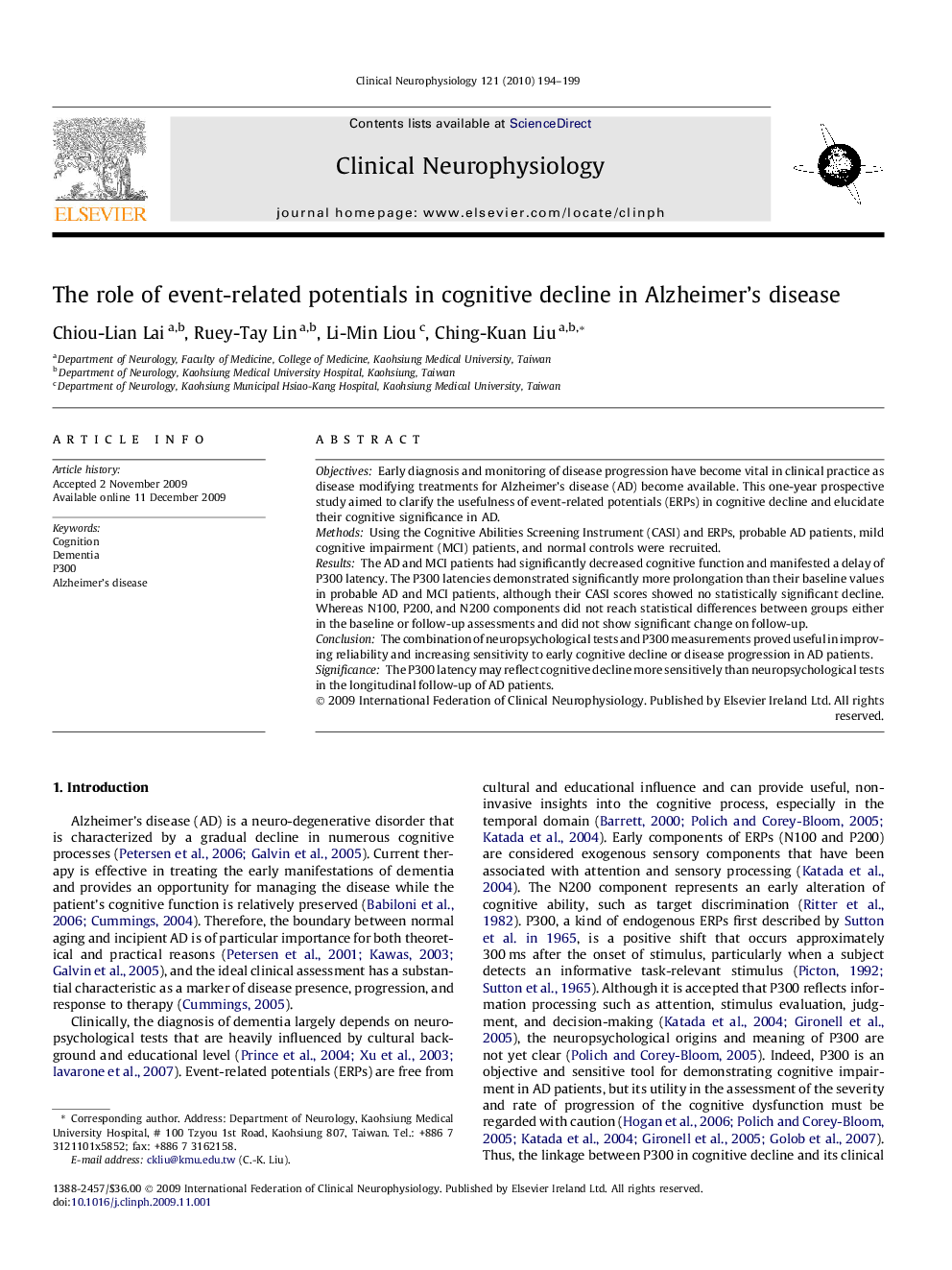| Article ID | Journal | Published Year | Pages | File Type |
|---|---|---|---|---|
| 3045321 | Clinical Neurophysiology | 2010 | 6 Pages |
ObjectivesEarly diagnosis and monitoring of disease progression have become vital in clinical practice as disease modifying treatments for Alzheimer’s disease (AD) become available. This one-year prospective study aimed to clarify the usefulness of event-related potentials (ERPs) in cognitive decline and elucidate their cognitive significance in AD.MethodsUsing the Cognitive Abilities Screening Instrument (CASI) and ERPs, probable AD patients, mild cognitive impairment (MCI) patients, and normal controls were recruited.ResultsThe AD and MCI patients had significantly decreased cognitive function and manifested a delay of P300 latency. The P300 latencies demonstrated significantly more prolongation than their baseline values in probable AD and MCI patients, although their CASI scores showed no statistically significant decline. Whereas N100, P200, and N200 components did not reach statistical differences between groups either in the baseline or follow-up assessments and did not show significant change on follow-up.ConclusionThe combination of neuropsychological tests and P300 measurements proved useful in improving reliability and increasing sensitivity to early cognitive decline or disease progression in AD patients.SignificanceThe P300 latency may reflect cognitive decline more sensitively than neuropsychological tests in the longitudinal follow-up of AD patients.
